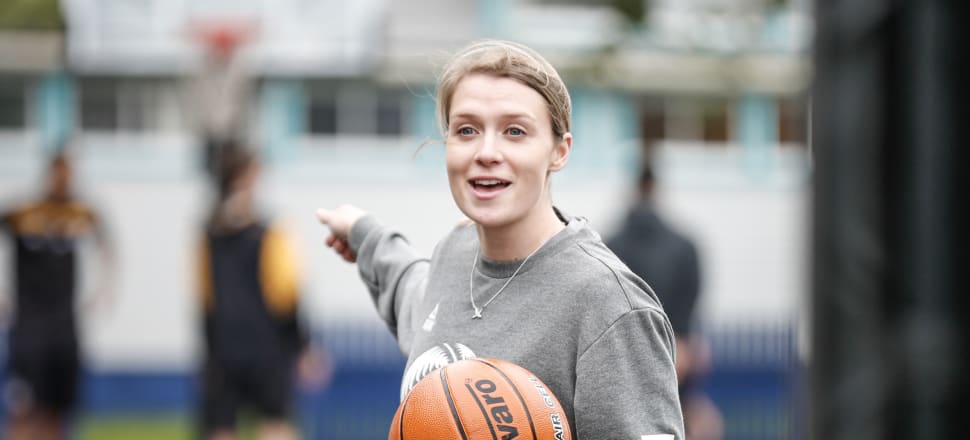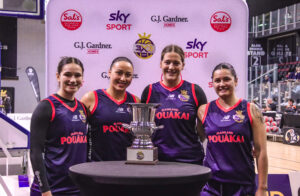Before Mainland Pouākai guard Tessa Morrison was offered a professional pathway in basketball, she helped at-risk rangatahi turn their lives around. Now she’s showing young women how they can make the most of the game too.
The greatest basketball games in Tessa Morrison’s career have been played without a scoreboard or even a referee.
Instead, she learned with just a basketball and a hoop, she could reach at-risk youth whose lives depended on it.
Morrison is about to pull on a Mainland Pouākai jersey and take the court in the inaugural Tauihi Women’s Basketball League starting next month.
But before basketball in New Zealand offered her a professional pathway, Morrison was a youth worker for a charitable trust in a residential setting.
Her first assignment: supporting troubled rangatahi with a history of serious misconduct, through reintegration back into their whānau, work and school.
As a young woman facing this challenging new territory, Morrison relied on basketball. She knew the young men wouldn’t “just sit down and talk.”
The residence happened to have a new basketball hoop.
“If you’re playing basketball and chatting away, even if they don’t really want to talk to you, it’s still a really good way to connect,” says Morrison. “Through basketball, it made them realise I wasn’t just someone there to get information out of them.”
The experience was “eye-opening” for Morrison, who has a degree in psychology.
“It was cool to see the potential in kids who’d been troubled in the past, helping them get through that stage in their life and showing them there’s actually a big wide world out there,” she says.
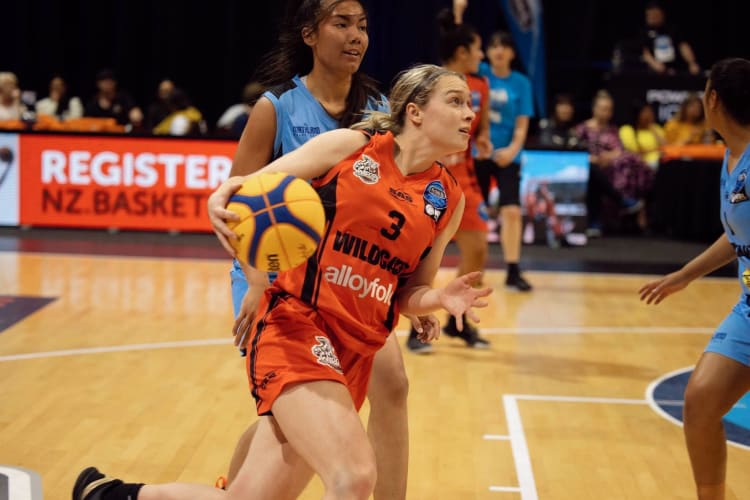
Basketball has taken Mid Canterbury-born Morrison around the world, and home again. Now she’s using the sport to reach young girls in the South Island and show them there’s a pathway for them in basketball.
Morrison spent two seasons studying forensic psychology and playing basketball at Southern New Hampshire University, braving back-to-back winters and snowbanks the size of sheep.
Her adventure was a huge learning curve. But when the midcourter returned to Te Waipounamu in 2018, and to the Canterbury Wildcats team she’s played in since she was 15, Morrison was able to lift her game and her spirits.
“I just enjoyed basketball again. Having my mum there, watching, supporting,” 24-year-old Morrison says. “She’s always been my number one supporter. I played some of the best basketball I’ve ever played.”
Morrison credits Tall Ferns assistant coach Mel Downer, who also coached the Wildcats, as a powerful influence and “awesome advocate” for women’s basketball.
After a single preseason game for the Wildcats before the 2020 women’s NBL, Morrison suffered a season-ending ACL tear which put her career on hold indefinitely.
Last weekend, she finally lined up again in the Lincoln University squad for her first competitive game in 20 months.
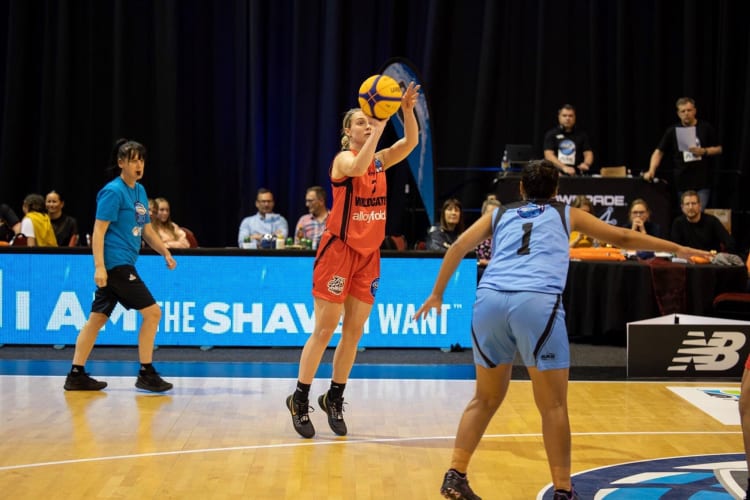
Morrison’s basketball journey began at the age of five; she followed her brother to practices and was often asked by her mother – the coach – to fill in on court.
At Longbeach School, on the outskirts of Ashburton, with only 100 students on the roll, Morrison often played on mixed teams against all-boys sides.
“It wasn’t until intermediate that I started playing other girls’ teams,” she recalls. “For some girls, [playing on mixed teams] was definitely a barrier. The boys didn’t always pass to them,” she says.
“I was lucky that I was one of the better players on the team, so I had a good experience.”
She’s conscious, however, that not everyone is as lucky (or as gifted).
Morrison now wears two jerseys – one of an athlete and one of an advocate. She takes a great deal of pride in showcasing basketball and the new women’s pathway to young girls, both as a role model and through her new job.
“Knowing that now there’s a professional pathway in New Zealand…young girls need someone to look up to, and role models, so they actually can recognise the pathway and how cool the sport is,” she says.
Morrison’s idol was Wildcats captain Shea Crotty.
“She was a great leader. Anyone who has ever played under Shea as a captain will vouch for that,” she says.
“Tessa Boagni was the first person I knew to go overseas and play for college. That inspired me to put in really hard work and play over there.
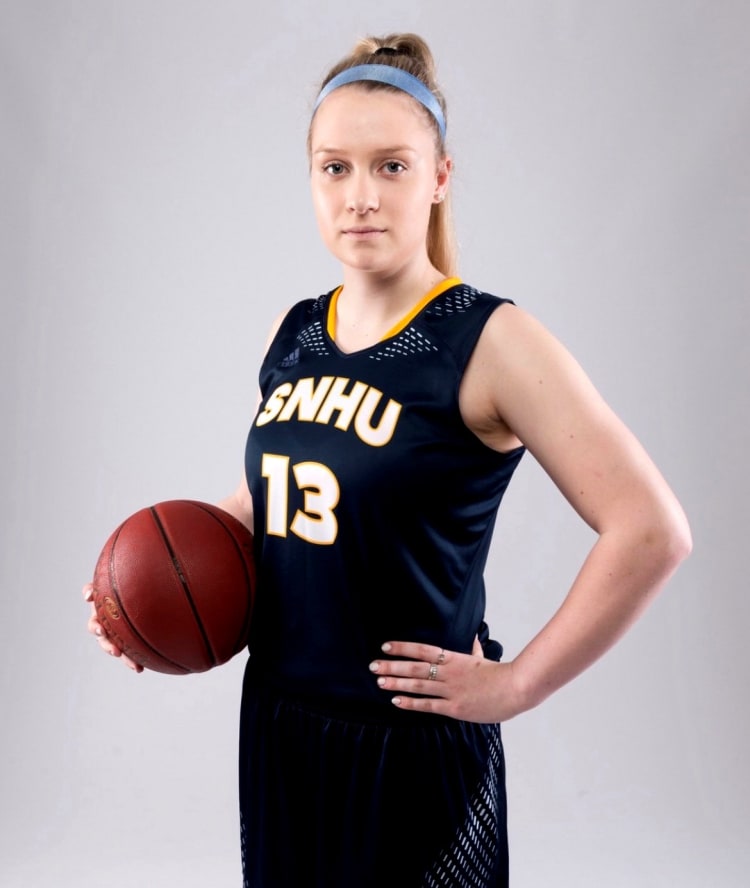
“Most of my role models at that stage in my life were local. They weren’t necessarily WNBA or WNBL. They were girls I saw playing and was lucky enough to play with.”
Last November, her advocacy led her to a new role with Basketball New Zealand, based in the South Island, as community lead for women and girls. Her pilot region covers greater Canterbury, and her task is to increase participation by women and girls in all aspects of the game.
“Whether as players, coaches, referees or administrators, it’s about growing leaders, and empowering more girls in the basketball scene,” she says.
The new role started with gathering insights into the community, meeting with groups of high school students and learning from their experiences.
“Girls want so many things out of sport; it’s not necessarily always the competitive side,” Morrison says. “It’s about piloting new initiatives and understanding what girls want and need from sport in general, in particular basketball.
“If we learn from them, we can cater to their needs and ensure they have quality experiences.”
Morrison is a campaigner for equality and fairness.
“Basketball has been a male-dominated sport. We have to say women’s basketball or girls’ basketball. It should just be basketball,” she says. “It shouldn’t matter your gender.”
She remembers her own early sporting experiences, shaped by privilege and “whose parents could drop them off at training.”
“When I was young it was all about who could be there. I was really lucky with my parents taking me to training literally six days a week during my early high school years,” she says.
“There were probably a lot of girls who missed out, because it wasn’t accessible to everyone.”
Morrison reflects on this from her Basketball New Zealand perspective, as well as her time working with troubled youth, when the court became a critical conversation starter.
“Everybody’s had different experiences. Some are not necessarily right or wrong – everybody’s just different,” she says. “Everybody should be given equal opportunities – no judgement.”
At this point it’s easy to see why basketball is so much more than a sport in the life of Tessa Morrison. And why a pathway means so much.
“A pathway means different things for different people. Whether you start shooting hoops by yourself, or you start playing with friends at the local park. That’s the cool thing about basketball – it brings people together,” she says.
“All you need is a ball and a hoop at the local school or park. It’s very inclusive.”
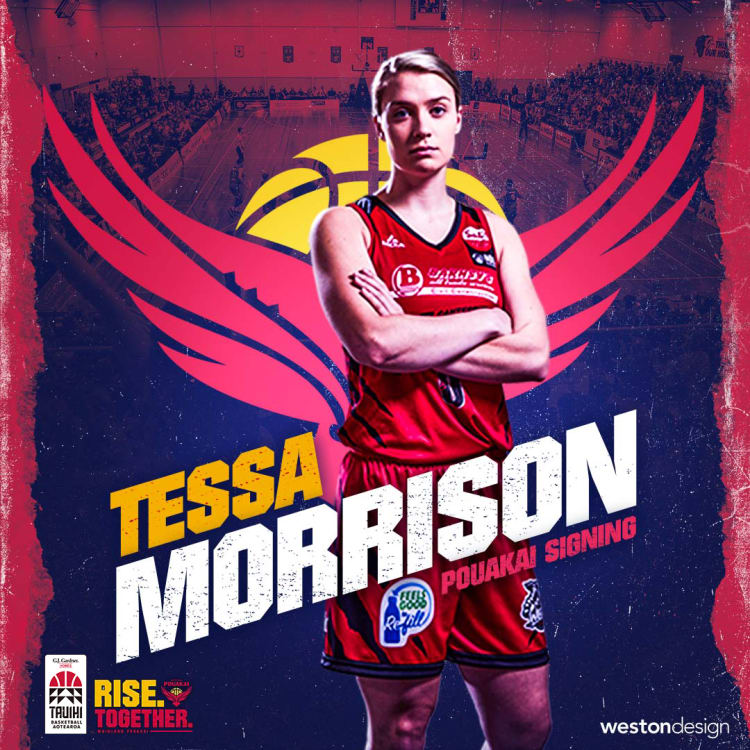
After a recent community basketball camp for primary-aged students led by the Mainland Pouākai players, Morrison was asked: ‘Are you excited to play in the Mainland Pouākai team and be a role model for younger girls playing basketball?’
She answered with a smile.
“Yes I am. Definitely. Obviously, the league is awesome, and what women’s basketball has needed for a really long time,” she said.
“The thing I’m most excited about playing for the Pouākai is that it’s just really cool with Canterbury’s best players coming back and getting to play with some of the girls I grew up playing with, who’ve been playing overseas.
“I’ve now got friends for life. The basketball community is such a family vibe.”
Having played for the New Zealand U20s back in 2014, does she have dreams of playing for the Tall Ferns?
“At this stage it’s more about being on the court and getting to play in general, but I would love to represent my country,” she says.
In the same way she’ll help entertain crowds of new Pouākai followers from across Waitaha Canterbury this winter, she’ll look back on a quieter court, at a time when the game had greater consequences.
Those young people Morrison once played hoops with have now been rehabilitated into their own homes, schools and communities. They’ve learned to set goals and take on new life experiences, like getting a driver’s licence.
“[We saw] the effort they would put into those tasks that they hadn’t before. Yes, they may have known how to fight the system. But they put in the hard work and really reflected on themselves as well,” she says.
“Using sport as a way to connect with youth is really important.”
Although they were involved with serious misconduct at a young age, she insists the labels are less important.
Their common bond began with the mistakes they made; their future was shaped by some conversations while shooting hoops.
Morrison has marked June 29 on her calendar. It may be the beginning of not only a new league or a new team, but a new outlook for Aotearoa.
“So we can just call it basketball,” she says. “And it doesn’t have a gender.”

Article originally published on newsroom.co.nz
https://www.newsroom.co.nz/lockerroom/basketballer-uses-court-to-change-young-lives

